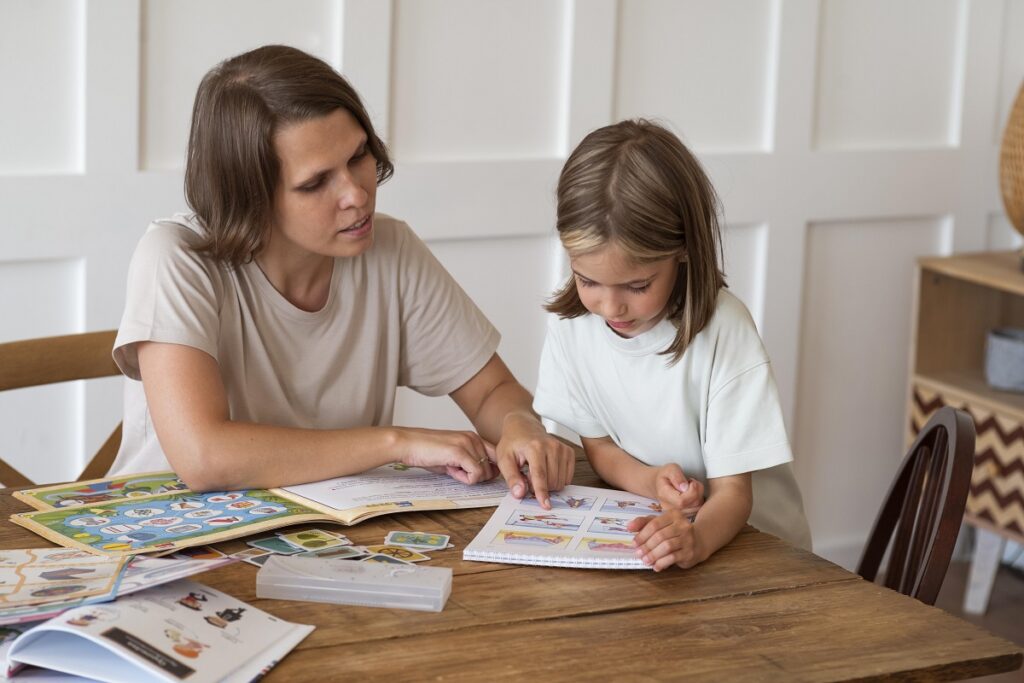Hello parents! Have you ever wondered how to teach your child English at home? In today’s global society, knowing English opens many doors and provides numerous opportunities for the future. If you’re wondering how to start teaching your child English in the comfort of your home, this article is for you!
Create an English-speaking atmosphere at home.
It’s important for your child to be surrounded by the English language most of the time. You can start with simple steps, such as listening to English songs or watching cartoons in English. Introduce educational materials into your child’s room, such as colorful pictures, alphabet charts, or numbers. Also, use interactive apps and educational games that will make learning English enjoyable and engaging.
Time for fun.
Children learn best through play. Use this principle by organizing games, puzzles, and language activities in English. You can play charades, guess words, or create sentences. Play word games like Scrabble or word-guessing races. This is a great way to develop your child’s vocabulary while spending quality time together. Remember to keep the fun enjoyable and interesting so that your child stays motivated to learn.
Use a variety of materials.
The internet is an invaluable source of educational materials. You will find many websites, apps, and videos specifically designed for children learning English. You can also borrow English books from the library and read them together with your child. Reading books in English is a great way to expand vocabulary and gain new knowledge. Choose different types of literature, such as fairy tales, stories, or educational books. Remember, it doesn’t have to be long reading sessions – even a few minutes a day can have a significant impact on your child’s language development. A variety of materials will help your child better understand the language and develop communication skills.
Approach learning systematically.
Establish a regular schedule for learning English at home. This could be a daily session at a specific time when you dedicate time to learn together. Remember that consistency is key to effectively acquiring the language. It doesn’t have to be a long session; 15-20 minutes a day is sufficient, but regularity is important.
Create pleasant situations for conversations.
While cooking, walking, or playing, create opportunities to speak in English. You can describe what you see around you, ask simple questions, and answer them. This will help your child feel comfortable using the new language.
Sing songs.
Music is a wonderful way to remember new words and phrases. Look for popular children’s songs in English and sing together. Movement and dance are also important elements that help reinforce vocabulary and expressions. It’s a great way to relax and learn at the same time!
Use educational apps.
Nowadays, technology offers us many possibilities. Choose educational apps that provide interactive English lessons tailored to your child’s age. This can also be a great opportunity to spend time together.
Organize an “international” evening.
Involve the whole family in an “international” evening where all communication takes place in English. It’s a lot of fun and an excellent language exercise for everyone!
Support and reward progress.
Always be ready to praise and support your child when they make efforts to learn English. Remember that small steps are just as important as big progress. You can create small rewards for achievements, such as badges or certificates, to motivate your child to continue learning.
Some children may learn the language faster, while others may need more time. Remember that patience and creativity are key. By starting to learn English at home, you are giving your child a huge gift for the future. I wish you fruitful learning and unforgettable moments spent together with your child!


